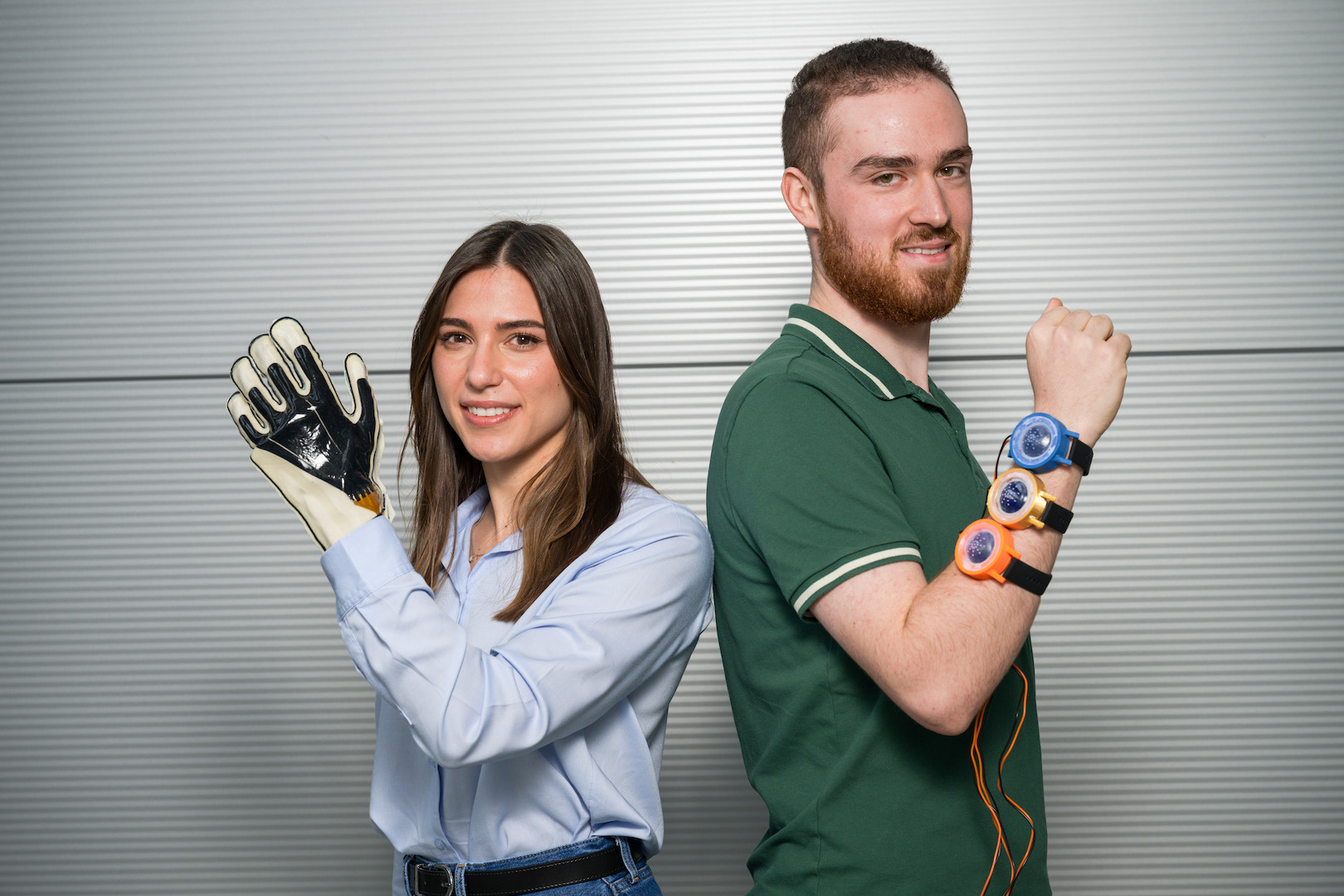Physical contact triggers the release of hormones beneficial to health, such as oxytocin, serotonin and dopamine, as well as reducing stress, stimulating the immune system and relieving pain.
This is why research into touch has focused on the potential of smart textiles to stimulate healthcare.
Given their therapeutic and medicinal value, scientists at Saarland University have developed a smart textile that allows seriously ill children in hospital isolation wards to feel the closeness of their parents.
According to Interesting Engineering, the textile, made of silicon, is 50 micrometers thick and works like a second skin.

Paul Motzki, a professor at Saarland University, explained that "a highly flexible electrically conductive layer is printed on each side of the ultra-thin film to create what is known as a dielectric elastomer".
If you apply a voltage to the elastomer film, "the electrodes attract each other, compressing the polymer and causing it to expand sideways, thus increasing its surface area".
The film is thus imprinted with the touch of the children's parents. When they come into contact, they change the "electrical capacitance, a physical quantity that can be measured precisely".
It then sends the sequence to the child wearing the second skin, the film picks up the touch and transmits it. The speed and degree of sensitivity of the touch can also be regulated.
"We can make the film perform continuously controlled bending movements so that it exerts increasing pressure on the skin, or we can make it remain in a fixed position," added doctoral student Sipontina Croce.
At the Hannover Messe innovation conference, the researchers will demonstrate with a watch that they can transform a touch made by a finger into "long stroking movements" and that they are able to amplify a sensation with a tiny amount of physical film.





